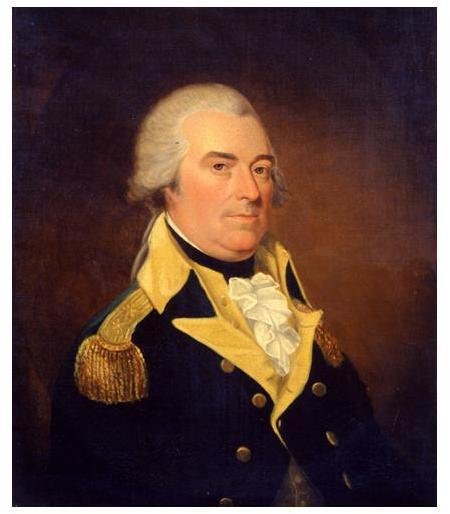The Spoils of War
By Cindy McGroarty
Did you know…
…that General Anthony Wayne, ardent soldier of the American Revolution, fiercely proud third-generation Pennsylvania colonist, became a southern plantation owner at the end of the war?
That’s right. In 1782, the Georgia General Assembly gave Wayne a sprawling rice plantation called Richmond, twelve miles upriver from Savannah, as thanks for helping roust the last of the British Army out of that colony in the closing months of the war.
Perhaps gratitude was only part of the equation for the generous Georgians. The state had seized the plantation from Alexander Wright, a loyalist and the son of one-time royal governor James Wright. Must have been, um, satisfying for legislators from General Nathanael Green’s home turf to de-land said loyalist and hand over his 847 acres and fine estate house to the cocky, conquering hero from points north.
Such are the spoils of war.
Wayne had high hopes for life among the landed gentry—dogged by dodgy health after eight years of cold, damp field combat, he was particularly seduced by the promise of warm southern climes. Alas, running a plantation was tricky business—tricky, expensive business—and it soon began to dawn on the General that he would need to sink considerable money into the operation if he was to make a go of it.
Money for slaves, for one thing. Yes, like so many of the men who played starring roles in the cause of American liberty, Wayne didn’t blink at the notion of using enslaved people to run his business, was in fact disheartened to find that the price of slaves on the open market was quite high and out of his reach.
Wayne was not without means, of course. His own ancestral estate in Chester County was worth a pretty penny, and he had a sizeable officer’s pension to look forward to in the coming years. But none of that added up to ready cash.
After five years of desperate, often disputatious, convoluted wrangling for loans and capital, and brief forays into some much-contested debt, Wayne made limping progress on the plantation, which he visited only now and then because of the grueling commute from Paoli. So he gave up his dream of lucrative doings in the balmy South and put Richmond up for sale.
In the end, things worked out for the Wayne. He settled back into life in the chilly north among welcoming family and friends and returned to running the tannery business he’d inherited from his father before the war. And little did he know he would soon be pressed into service again, in the Northwest Territory, an assignment for which he would pay the ultimate price.
But that’s a story for another day.
***
Many thanks to Paul David Nelson’s fine biography Anthony Wayne: Soldier of the Early Republic for the information contained in this blog.
#historicwaynesborough #generalanthonywayne #hiddenhistories #philalandmarks #americanrevolution #revolutionaryhistory

